Can A Motherboard Bottleneck A Gpu – Ultimate Guide For 2024!
I upgraded to a new GPU, but I still wasn’t getting the performance I expected. I wondered, ‘Can a motherboard bottleneck a GPU?’ and found that my old motherboard was the problem.
Yes, a motherboard can bottleneck a GPU. If the PCIe slot is old, the power delivery is weak, or the motherboard isn’t up-to-date, it can limit your GPU’s performance. Choosing a good motherboard helps your GPU perform its best.
In this article, we’ll discuss “Can a Motherboard Bottleneck a GPU”.
What Is A Bottleneck?
A bottleneck happens when one part of a computer limits the performance of other parts. For example, an old motherboard can slow down a new GPU or CPU, preventing them from working at their full potential.
What Does It Mean For Can A Motherboard Bottleneck A Gpu?
When we say “can a motherboard bottleneck a GPU,” we mean that the motherboard can limit how well the GPU performs. If the motherboard is old or has low specs, it might not support the GPU’s full power or speed. This can make your GPU work slower than it should. To avoid this, you need a good motherboard that matches your GPU’s needs.
What Can Bottleneck A Gpu?
Several things can bottleneck or limit a GPU’s performance. One common bottleneck is an outdated or slow CPU that can’t keep up with the GPU’s processing power. Another bottleneck can be the motherboard’s PCIe slot if it’s older and can’t transfer data fast enough to the GPU.
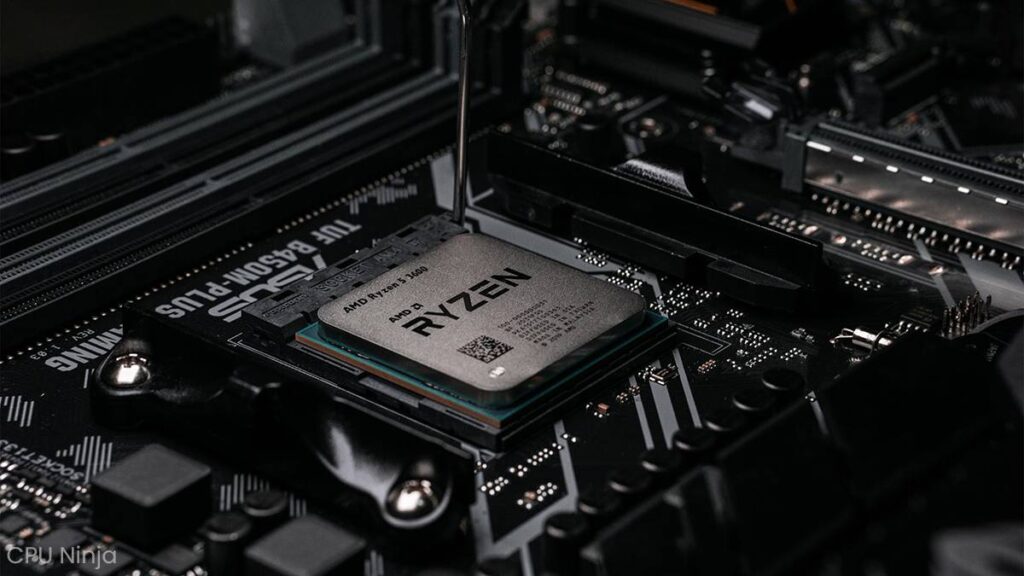
Can A Motherboard Bottleneck A Gpu?
Yes, a motherboard can bottleneck a GPU. This means that if the motherboard is old or has low specs, it might slow down the GPU’s performance. For example, an old PCIe slot might not be fast enough, or weak power delivery can limit the GPU’s power. To get the best performance from your GPU, you need a good, up-to-date motherboard.
Read More: Gpu Only Works In Second Slot – Isolate The Problem!
Can A Motherboard Cause Bottlenecks?
Yes, a motherboard can cause bottlenecks. A bottleneck happens when the motherboard’s features or age limit the performance of other parts like the GPU or CPU. For example, an old PCIe slot might be too slow for a new GPU, or poor power delivery can cause performance issues. A good, modern motherboard helps all your computer parts work well together.
Can Motherboard Affect Gpu?
Yes, the motherboard can affect the GPU. The motherboard’s PCIe slot, power delivery, and chipset can impact how well the GPU performs. An old or low-quality motherboard might be too slow, not provide enough power, or lack features needed for the GPU to work at its best. A good motherboard ensures your GPU performs well.
Why Can A Motherboard Bottleneck A Gpu?
1. Old PCIe Slot Version:
The PCIe slot on the motherboard connects the GPU to the rest of the computer. New GPUs need fast PCIe slots to work properly. If your motherboard has an old PCIe slot, it might be too slow for the new GPU, causing a bottleneck.
2. Weak Power Delivery:
The motherboard provides power to the GPU through the PCIe slot and power connectors. If the motherboard’s power delivery system isn’t strong, the GPU might not get enough power to perform well.
3. Low-Quality Chipset:
The chipset on the motherboard manages communication between the GPU and other parts of the computer. A low-quality chipset might not handle high-performance GPUs very well.
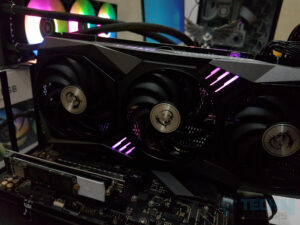
4. Outdated BIOS/UEFI:
BIOS/UEFI is the software that helps the motherboard and GPU work together. If the BIOS/UEFI is outdated, it might not fully support new GPUs.
5. Overall System Balance:
A good balance between the GPU, CPU, and other components is important. If the motherboard is too old or weak, it might not support the GPU properly.
Read More: Does Amd Gpu Work With Intel Cpu – Start Reading Now!
How Can/Do Motherboard Bottleneck GPUs?
Balance Of Your System:
First, the PCIe slot version on the motherboard plays a crucial role in GPU performance. The PCIe slot is where you connect the GPU to the motherboard, and it comes in different versions like PCIe 3.0, PCIe 4.0, and PCIe 5.0. Each version offers different speeds for data transfer. Newer GPUs are designed to use the faster PCIe 4.0 or PCIe 5.0 slots.
Power Delivery:
Another way a motherboard can bottleneck a GPU is through power delivery. The motherboard needs to provide power to the GPU through the PCIe slot and additional power connectors. High-performance GPUs require more power than older or less powerful models. If your motherboard’s power delivery system is not strong enough, it can cause the GPU to underperform.
Chipset:
The chipset on the motherboard also affects GPU performance. The chipset is like the brain of the motherboard; it controls how different parts of your computer communicate with each other. Some chipsets are designed for high-end components and advanced features, while others are more basic.
Bios/Uefi Updates:
BIOS/UEFI updates are another important factor. BIOS (Basic Input/Output System) or UEFI (Unified Extensible Firmware Interface) is the software that manages the motherboard’s hardware. Manufacturers release updates to fix bugs, improve performance, and add support for new components.
Balance Of Your System:
Lastly, the overall balance of your system affects GPU performance. A good balance means that all your computer’s components, like the CPU, GPU, and RAM, work well together. If the motherboard is too old or not powerful enough for the GPU, it can cause a bottleneck.
How Do I Know If My Motherboard Can Handle A Gpu?
To check if your motherboard can handle a GPU, look at a few key things. First, check the PCIe slot on the motherboard to make sure it matches the GPU’s requirements. Most modern GPUs need a PCIe x16 slot. Next, look at the power supply to ensure it can give enough power to the GPU and check that the power connectors are compatible.
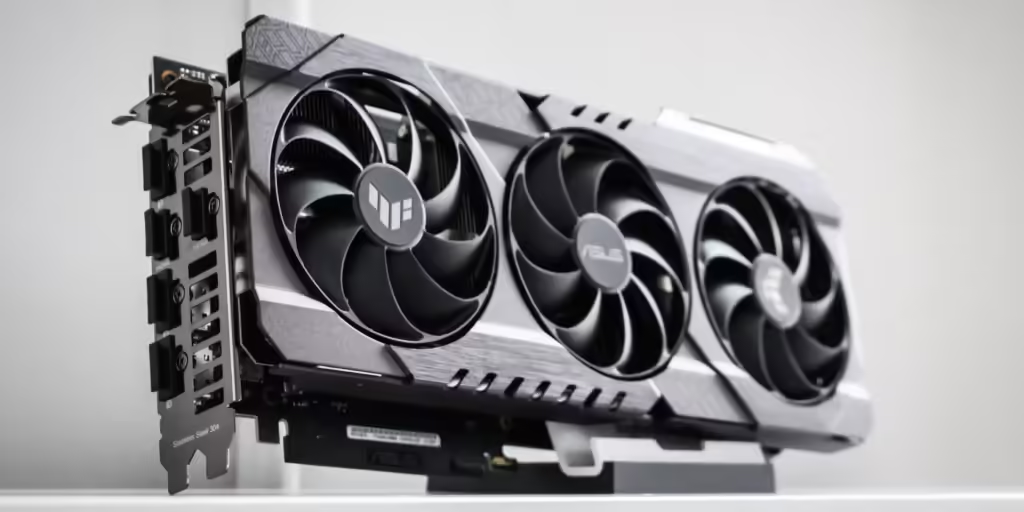
Can A Motherboard Bottleneck A Gpu Or Cpu?
Yes, a motherboard can bottleneck both a GPU and a CPU. A bottleneck happens when the motherboard’s features limit how well the GPU or CPU performs. For the GPU, an old PCIe slot or weak power delivery can slow it down.
For the CPU, a low-quality motherboard or an old chipset might not let the CPU work as fast as it should.
How Much Could A Motherboard Bottleneck A Gpu And Cpu?
A motherboard can bottleneck a GPU and CPU by limiting their performance. For example, an old PCIe slot or weak power delivery might reduce the GPU’s speed, while a low-quality chipset can slow down the CPU. The impact depends on how outdated or weak the motherboard is compared to your GPU and CPU.
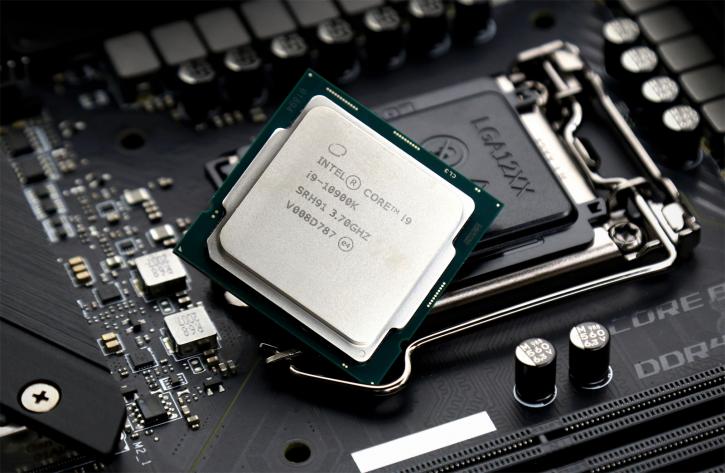
Can A Motherboard Bottleneck A System?
Yes, a motherboard can bottleneck a system. A bottleneck happens when one part of your computer, like the motherboard, limits the performance of other parts like the CPU or GPU. For example, if you have an old motherboard, it might not have a fast PCIe slot for a new GPU, or it might not provide enough power for high-end components.
Read More: Runtimeerror: Gpu Is Required To Quantize Or Run Quantize Model. – Read Our Guide!
Do Motherboards Bottleneck ( Gpu/Cpu )?
Yes, motherboards can bottleneck both GPUs and CPUs. A bottleneck happens when the motherboard’s features or age limit the performance of the GPU or CPU. For example, if the motherboard has an old PCIe slot, it might not handle the data speeds of a new GPU.
New Gpu Will Cause Cpu Bottleneck:
Yes, a new GPU can cause a CPU bottleneck. If you upgrade to a powerful new GPU but keep an old or weak CPU, the CPU might not be able to keep up with the GPU’s performance. This means the CPU will limit the GPU’s ability to perform well. You might not see the full benefits of the new GPU because the CPU is too slow.
Is This Gpu A Bottleneck For My Old Cpu?
Yes, a powerful GPU can be a bottleneck for an old CPU. When you use a very strong GPU with an old or weak CPU, the CPU might not be able to keep up with the GPU. This causes the GPU to not perform at its best because the CPU is holding it back. To avoid this, you should have a balanced system where the GPU and CPU are both strong enough for your needs.
Do Motherboards Come With Built-In Gpus, And How Do They Affect Separate GPUs?
Some motherboards have built-in GPUs, which are small graphics processors included on the motherboard. When you use a separate, more powerful GPU, it usually replaces the built-in GPU. The built-in GPU doesn’t affect the performance of the separate GPU, but you should make sure the BIOS settings are set to use the separate GPU for the best performance.
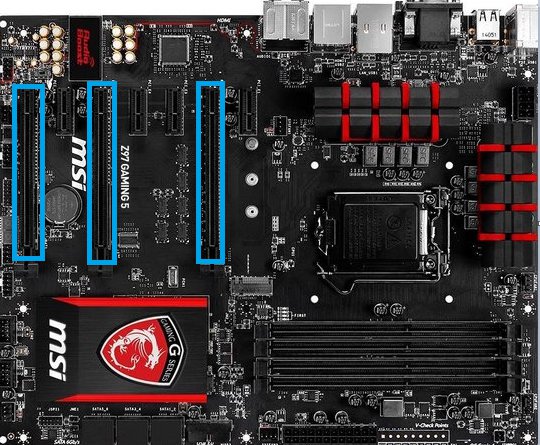
How Does Motherboard Cooling Impact Gpu Performance?
Motherboard cooling is important for overall system performance, including the GPU. Good cooling helps keep the entire system, including the GPU, at a safe temperature. If the motherboard and other components are well-cooled, the GPU can stay cool and perform better. Poor cooling can lead to overheating, which can make the GPU slow down to prevent damage.
Read More: Cuda Setup Failed Despite Gpu Being Available – Explore For All Details!
FAQs:
1. Can The Motherboard Affect The Overclocking Potential Of A Gpu?
Yes, a high-quality motherboard with good power delivery and cooling can support better overclocking of the GPU.
2. How Can A Pcie Slot Version Affect Gpu Performance?
Different PCIe slot versions (like PCIe 3.0, 4.0, 5.0) have different speeds. An older PCIe slot (e.g., 3.0) might not fully support the speed of a newer, faster GPU, slowing it down.
3. Can A Motherboard’s Power Delivery System Affect My Gpu?
Yes, if the motherboard doesn’t provide enough power, the GPU can’t perform at its best. High-end GPUs need a lot of power, and some motherboards can’t supply it efficiently.
4. What Is A Chipset, And Why Does It Matter For Gpu Performance?
The chipset controls communication between the CPU, GPU, and other parts. High-end chipsets support better performance and more features, while budget chipsets might limit GPU performance.
5. Why Are Bios/Uefi Updates Important For My Gpu?
BIOS/UEFI updates improve compatibility and performance. An outdated BIOS/UEFI might not support new GPUs well, causing issues.
6. Can Using An Old Motherboard With A New Gpu Cause Problems?
Yes, an old motherboard with an older PCIe slot or weak power delivery might not fully support a new, powerful GPU, leading to a performance bottleneck.
7. How Can I Avoid A Motherboard Bottlenecking My Gpu?
Choose a motherboard with the latest PCIe slot version, good power delivery, a high-end chipset, and keep the BIOS/UEFI updated.
8. Is It Necessary To Update My Motherboard’s Bios/Uefi For A New Gpu?
Yes, updating the BIOS/UEFI can improve compatibility and performance with new GPUs, helping avoid potential issues.
9. How Does The Overall System Balance Affect Gpu Performance?
A balanced system means the CPU, GPU, and other components are well-matched. If you pair a strong GPU with a weak CPU or motherboard, it can cause performance issues.
10. What Are Some Signs That My Motherboard Is Bottlenecking My Gpu?
Signs include lower than expected performance, crashes, or the GPU not running at full speed. Ensuring compatibility and adequate power delivery can help prevent this.
Conclusion:
In conclusion, a motherboard can definitely bottleneck a GPU or CPU, limiting their performance if it’s old or has low specs. Problems like an outdated PCIe slot, weak power delivery, or a basic chipset can slow down your GPU and CPU. To get the best performance from your components, make sure your motherboard is modern and matches the needs of your GPU and CPU. A good motherboard ensures that all parts of your computer work well together for better performance.
Related Posts:
- What Temperature Is Too Hot For A Gpu – A Complete Guide Of 2024!
- What Is A Good Gpu Clock Speed Mhz – Upgrade Your Knowledge Today!
- What Should Gpu Temp Be While Gaming – Upgrade Your Knowledge!
- How To Find GPU Serial Number – Ultimate Guide For 2024!

Thamson Roy is a GPU expert with 5 years of experience in GPU repair. On Tech Crunchz, he shares practical tips, guides, and troubleshooting advice to help you keep your GPU in top shape. Whether you’re a beginner or a seasoned tech enthusiast, Roy’s expertise will help you understand and fix your GPU issues easily.

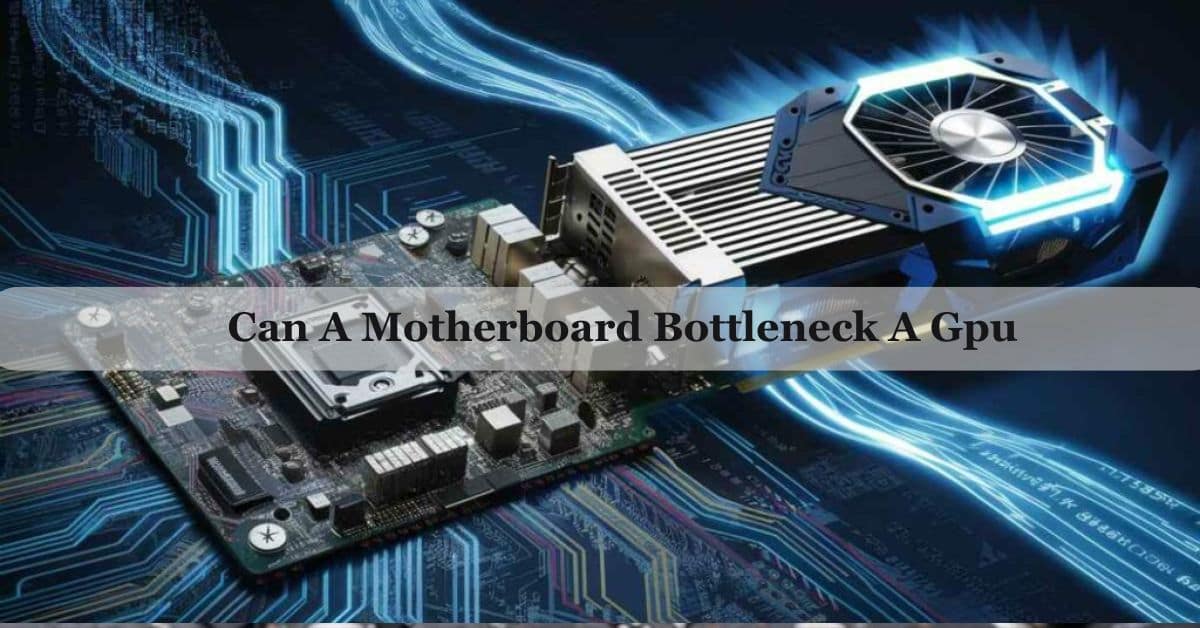
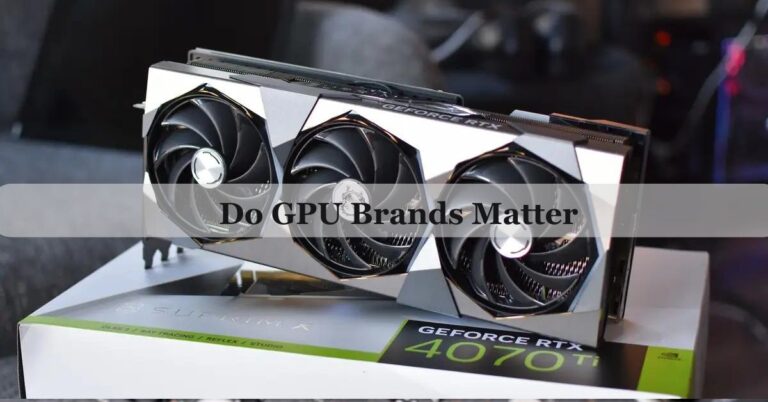
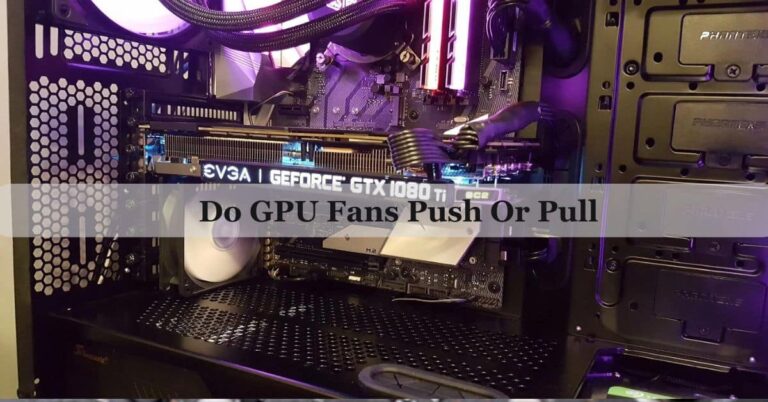
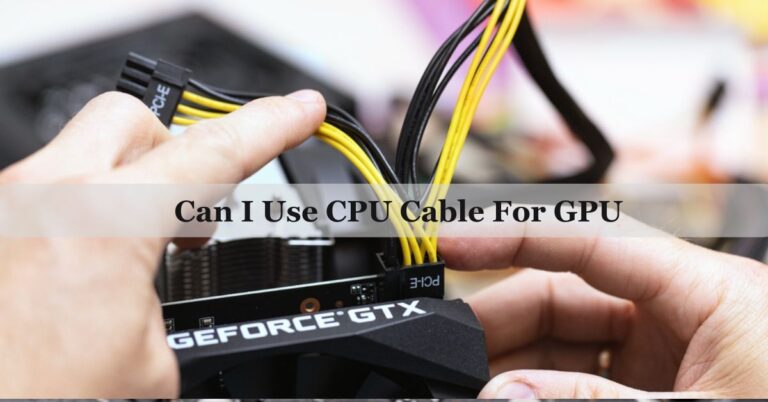
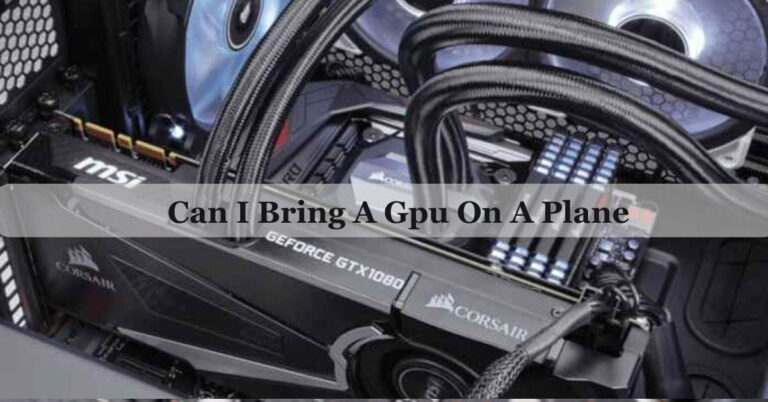
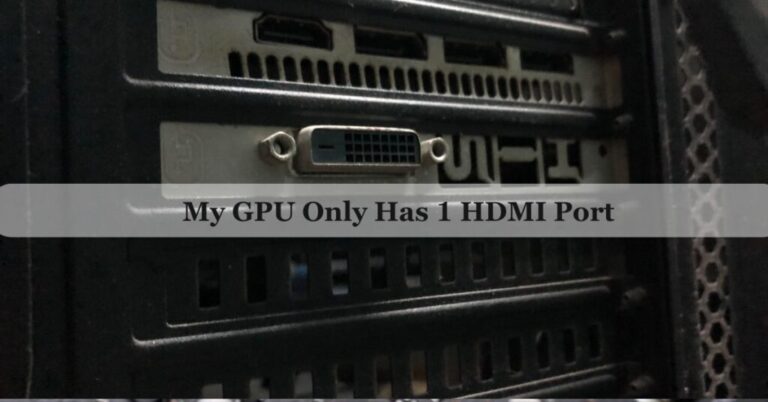
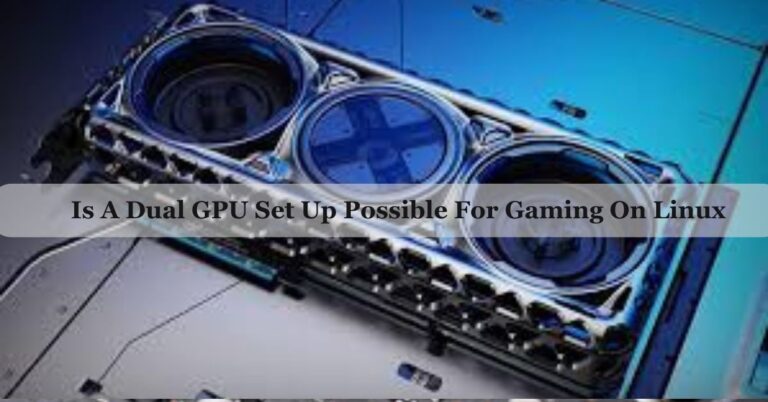
9 Comments